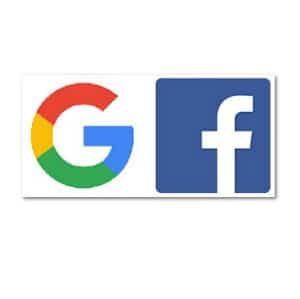
Those two super companies own a combined 72% share of the digital and mobile media revenue. And one of the reasons why is brilliant. Radio often touts how some of its salespeople have become the marketing arm of local advertisers, relied upon to present marketing solutions that drive customer traffic through the use of radio. Imagine if you were able to embed radio salespeople inside the walls of the largest advertisers in the country, to constantly teach them how, when and why to use radio.
According to AdAge, Google and Facebook have employee teams that are 100% dedicated to most of the largest advertisers and sometimes those employees are embedded with marketing departments. AdAge rightly claims that these teams “are operating on a scale no other media players have yet achieved.”
Google and Facebook are helping marketers learn intricacies of the constant changes in their platforms, get early looks at new technology, test what works and doesn’t for brands, and even develop ads. AdAge reports that some people “liken these teams to sales reps at other media companies, account planners and other client handlers at media and creative agencies, or even category-management teams that big suppliers assign to major retailers. But they’re not quite any of the above, or maybe a combination of all those things, giving them a role unlike anything the marketing world has seen before.”
Part of the work is what media agencies traditionally have done, according to the report in AdAge. “Google and Facebook experts help with segmentation or insights around using their channels. But on the creative side, the idea is more about showing what’s possible within a platform, such as how to make a video that will perform well in the Facebook news feed in 15 seconds or less with no sound, or how and whether J&J brands should work with new technologies or formats.”
Is anyone in radio embedded with major advertisers explaining the industry’s vision on how to integrate your digital products to generate more results for clients?
Read the full AdAge article HERE






It’s worse, Robert, than what you and Dave describe.
Whatever it is that makes radio executives think they can run a digital operation, it is killing those neuronal-synaptic sparks that make for accurate thinking.
Radio absolutely refuses to add value to its core business – influencing audiences to support the advertisers – by generating third-rate spots in phusterclucks.
They also refuse to train and supply those personalities who have an understanding of what it takes to be effective communicators.
I have no interest in knowing that radio is still a multi-billion dollar business.
My interest is in being available to enhance and correct this incredibly shoddy circumstance. There is no shame, either – just a corporate reality of reinforced ignorance, arrogance, greed and a wholly-accepted incompetence.
Other than those, things are pretty good. 🙂
Dave has a solid point. Google and Facebook don’t try to be radio station companies. And radio stations should stop trying to pretend they are “digital companies.” They are not. And clients have perceived, and will always perceive, radio reps and companies as just that- radio. When you pretend you’re something else, it is disingenuous and you lose credibility. Rado as a whole has made a HORRIBLE horrible mistake, taking its eye “off the ball” of the radio core product– the radio stations!! And do you want to produce better results for your local advertisers again?– Then STOP RUNNING 6, 8, 10 or more commercials in a row!! That’s why there’s such high churn with local advertisers– their commercials literally get buried in cluster breaks, which kills the listenership during the breaks…Also, instead of gazing at digital …take some money and actually put some compelling personalities back on radio, with some strong local promotions. This isn’t brain surgery. Many radio people spend too much time concerned about what digital is doing, what TV is doing, what print is doimg,etc. Clean up your own house, and determine your own destiny!
+1 for Dave Sanders comment.
They are eating your digital lunch because they are actually digital companies that invest in talent and technology as opposed to broadcast companies pretending to be digital companies because “its the next big thing”. When stations think they are “digital” because they have jocks writing blog articles and they are reselling some mediocre offering from digital ad companies, they are only fooling themselves.